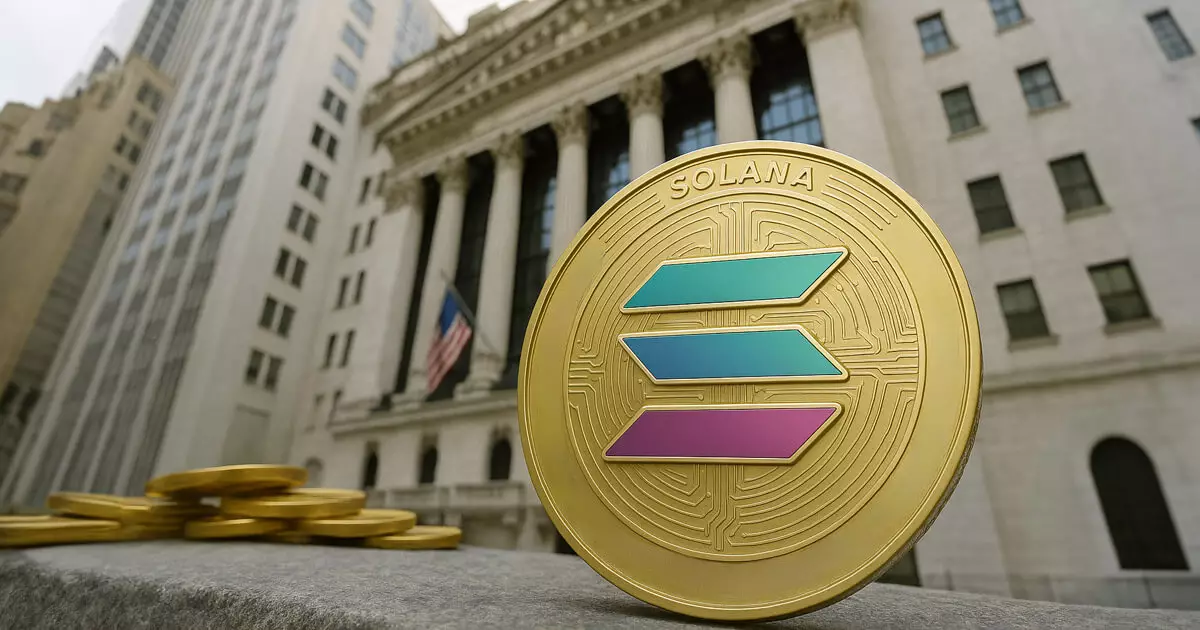Grayscale, a prominent player in the digital asset management sphere, is making waves with its latest move to launch a spot Solana exchange-traded fund (ETF). The firm’s recent submission of a Form S-1 with the U.S. Securities and Exchange Commission (SEC) signifies an ambitious pivot from its existing Grayscale Solana Trust (GSOL) to a publicly traded vehicle. This endeavor coincides with the predictions of crypto traders on Polymarket, who assign an 83% likelihood to the approval of the Solana ETF before the year’s end. However, in an interesting juxtaposition, the probability of an approval prior to July 31 remains at a relatively lukewarm 23%.
This disparity in timing underscores the intricacies of the regulatory landscape, which has consistently proven to be a double-edged sword for innovators in the cryptocurrency space. The pattern suggests growing optimism, but also a prudent vigilance toward regulatory hurdles. Notably, Grayscale’s efforts come just months after its initial 19b-4 filing, a clear acknowledgment of the evolving climate surrounding cryptocurrency regulations.
A Cautious Stance Amid Regulatory Scrutiny
While the announcement is exciting, it also reveals a conservative approach to the asset, particularly regarding staking. Grayscale’s decision to abstain from staking and yield generation for the Solana Trust ETF indicates a strategic conservatism, likely born from the prior administration under Gary Gensler that aggressively scrutinized staking operations within the crypto universe. This critical decision could serve as a buffer against regulatory backlash, though it also raises questions about potential missed opportunities for investors.
Nevertheless, the recent leadership changes within the SEC suggest a potential thawing of hostilities toward crypto innovations. There is speculation that the current administration may adopt a more lenient stance, paving the way for staking capabilities within ETFs. If industry experts are to be believed, integrating staking could not only enhance yields for investors but also align with federal regulatory standards.
Custodianship and the Road Ahead
With Coinbase assuming the role of custodian and BNY Mellon overseeing administration and transfer functions, the framework of the proposed ETF appears robust. This trio of trust, custodianship, and administration is essential for instilling confidence among potential investors. Yet, the stipulation that the ETF will operate solely on cash transactions poses a limitation that might deter certain segments of the investment community looking for a more entrepôt approach to asset management.
In essence, while Grayscale’s ambition is commendable, certain elements—like barring staking—dilute the ETF’s potential allure. Such limitations reflect the delicate balancing act between innovation and compliance, which continues to dominate discussions within the crypto sphere. The statistics surrounding the ETF’s approval odds also illuminate the tension between hope and caution, painting a picture of an industry grappling with its evolving identity amid systemic change.
As Grayscale navigates these waters, the implications of its strategic choices will resonate not just for itself but across the investment landscape. The outcome of this initiative, should it materialize, will indubitably serve as a bellwether for other institutions contemplating similar paths in the evolving cryptocurrency domain.

